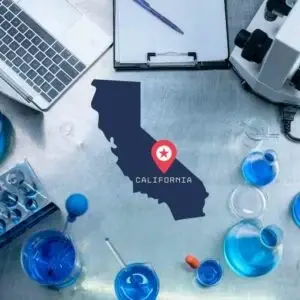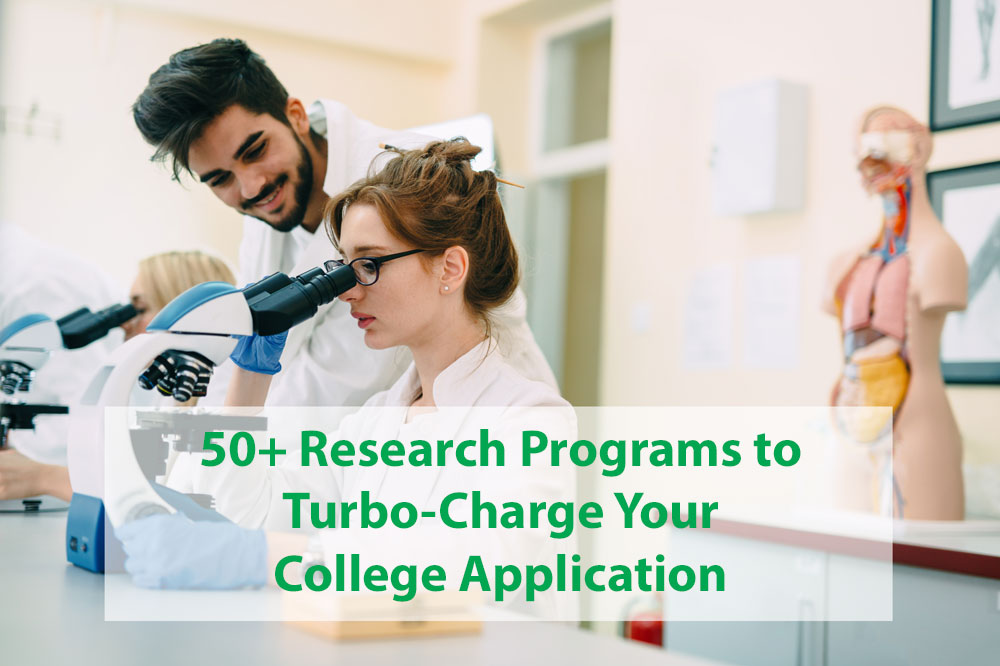- For High School Students
- Extracurriculars
Research Scholars Program for High School Students
Ambitious high school students aiming for elite college programs know that research experience sets them apart from other applicants. Designed by a Harvard-trained neuroscientist, the MedSchoolCoach Research Scholars program connects students with leading physicians and scientists to engage in meaningful, guided research that strengthens both their academic foundation and their admissions profile. This isn’t just another summer program – it’s a prestigious, one-of-a-kind mentored research experience built for future physicians and high-achievers bound for top universities.

The Importance of Research
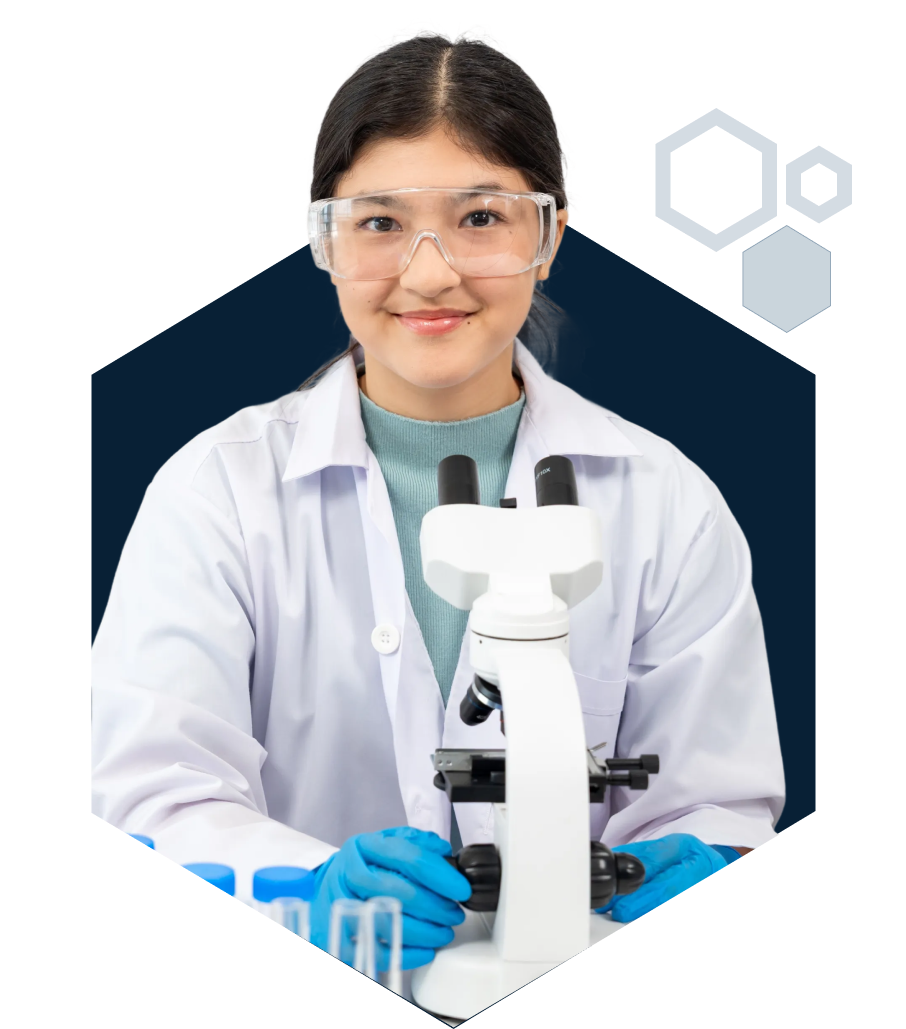

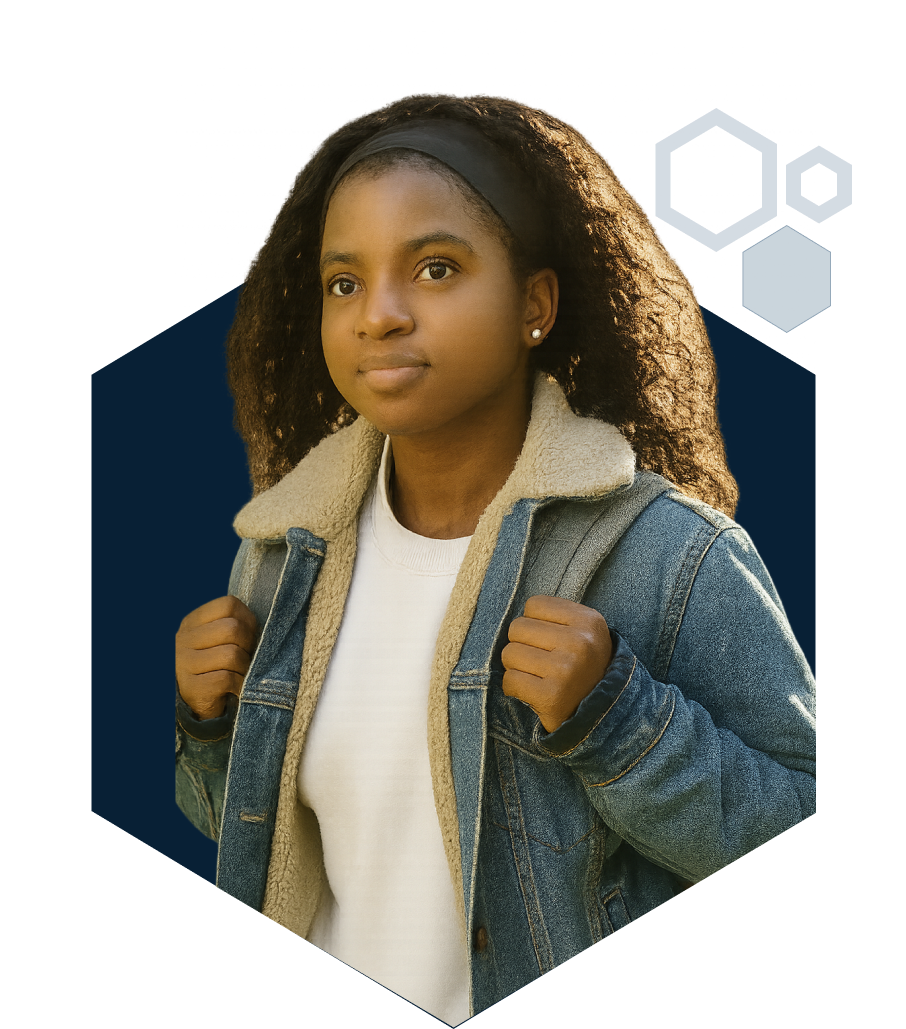
In today’s hyper-competitive admissions landscape, top colleges want more than strong grades and test scores. They’re looking for students who show initiative, intellectual depth, and the ability to think critically about real-world problems.
High school is the ideal time to go beyond textbooks and begin developing the skills that top colleges expect from serious applicants. Research not only strengthens applications, but it also equips students with the core competencies they’ll use throughout their academic and professional careers.
Admissions committees want to see more than grades and test scores. They look for proof of genuine passion and resilience. Research provides exactly that, demonstrating scholarship beyond being a "good student.” After all, research is at the heart of the field, as it is how we learn about diseases and drives the discovery of new cures and treatments.
-
Research Experience Sets Students Apart
In today’s hyper-competitive admissions landscape, top colleges want more than strong grades and test scores. They’re looking for students who show initiative, intellectual depth, and the ability to think critically about real-world problems.

Demonstrates Intellectual Curiosity
Research shows admissions committees that your student goes beyond classroom learning to explore unanswered questions in science and medicine.
Builds Persistence and Resilience
Conducting research requires problem-solving, iteration, and grit – all of which are qualities that elite programs know are essential for future physicians.
Proves Analytical Thinking
From forming hypotheses to interpreting results, research highlights your student’s ability to analyze complex information and communicate findings effectively.
-
Build Critical Skills Early
High school is the ideal time to go beyond textbooks and begin developing the skills that top colleges expect from serious applicants. Research not only strengthens applications, but it also equips students with the core competencies they’ll use throughout their academic and professional careers.

Design Experiments With Purpose
Students learn how to ask the right questions, create hypotheses, and design experiments that generate meaningful insights.
Analyze Data Effectively
From organizing results to identifying trends, students gain hands-on experience working with real data sets, including building analytical skills that transfer to any field of study.
Communicate Findings Clearly
Students learn to write full research papers with the potential for publication in peer-reviewed journals, demonstrating their ability to contribute meaningfully to the scientific community.
-
Demonstrate Commitment to Medicine
Admissions committees want to see more than grades and test scores. They look for proof of genuine passion and resilience. Research provides exactly that, demonstrating scholarship beyond being a "good student.” After all, research is at the heart of the field, as it is how we learn about diseases and drives the discovery of new cures and treatments.

PhD-Guided Experience from Top Institutions
Ph.D. mentors from leading research universities and institutes provide personalized guidance that helps students design and complete rigorous research projects. They ensure that each student develops critical scientific skills while gaining authentic insights into the research process.
Authentic Dedication
Hands-on research demonstrates persistence and motivation, which are qualities admissions officers view as essential for success in medicine.
Stronger Applications
Committees gain confidence knowing your child has already shown the maturity and drive required to excel in rigorous medical pathways.
What Sets MedSchoolCoach Apart
Not all research experiences are created equal. The MedSchoolCoach Research Scholars Program goes far beyond classroom science projects or generic internships. Every element is designed to provide your child with meaningful research that stands out to admissions committees and shapes them into a stronger, more confident applicant.
-1.png?width=188&height=79&name=image%20(21)-1.png)
-2.png?width=188&height=79&name=image%20(22)-2.png)
.png?width=187&height=78&name=image(6).png)
-1.png?width=187&height=78&name=image(4)-1.png)
-1.png?width=188&height=78&name=image(5)-1.png)

Get started by applying here. The application process takes about 15 minutes. Once submitted, the application will be reviewed by our Director of Research. If approved, and after the program fee is paid, your child will be matched with a Ph.D. mentor whose expertise aligns with their specific area of interest.
Your child engages directly in their research project, designing experiments, analyzing data, and drafting findings while building skills they will use in college, medical school, and beyond.

Together with their mentor, your student will identify a research pathway designed to highlight intellectual curiosity, critical thinking, and commitment to medicine, ensuring the work is both meaningful and admissions-ready.
Throughout the program, mentors provide ongoing feedback and support, ensuring that every step is both a learning experience and a building block for future success.

Students complete a full research paper under the guidance of their Ph.D. mentor. Those in the Gold package receive additional support from a Ph.D. mentor who guides them in preparing and submitting their paper to reputable peer-reviewed journals. This high-level academic achievement acts as a powerful differentiator for college applications.
Get started by applying here. The application process takes about 15 minutes. Once submitted, the application will be reviewed by our Director of Research. If approved, and after the program fee is paid, your child will be matched with a Ph.D. mentor whose expertise aligns with their specific area of interest.
Together with their mentor, your student will identify a research pathway designed to highlight intellectual curiosity, critical thinking, and commitment to medicine, ensuring the work is both meaningful and admissions-ready.
Your child engages directly in their research project, designing experiments, analyzing data, and drafting findings while building skills they will use in college, medical school, and beyond.
Students complete a full research paper under the guidance of their Ph.D. mentor. Those in the Gold package receive additional support from a Ph.D. mentor who guides them in preparing and submitting their paper to reputable peer-reviewed journals. This high-level academic achievement acts as a powerful differentiator for college applications.
Throughout the program, mentors provide ongoing feedback and support, ensuring that every step is both a learning experience and a building block for future success.
SAMPLE PROJECTS
Our students explore cutting-edge topics across science, medicine, and technology, producing high-impact research that strengthens their academic profiles. Here are some examples:
-
Identifying Risk Factors for Pancreatic Cancer Through Public Health Data Analysis
-
Temporal Characterization of Electroencephalogram Slowing Activity Types in Neurological Disorders
-
The Relationship Between Social Media Sentiment and Tech Stock Volatility
-
Projecting Regional Temperature Shifts Based on Industrial Emission Sectors
-
Deep Learning for Movement Analysis in Parkinson’s Disease and Levodopa-Induced Dyskinesia
SELECTED PUBLICATIONS
Our students have published their research in competitive journals, highlighting diverse topics such as environmental health, sociology, and cardiology. Here are some key publications:
-
Born Into Risk: How Prenatal Exposure to PM2.5 Shapes Autism Outcomes American Journal of Student Research, 2025 Sep DOI: 10.70251/HYJR2348.35276281
This study utilizes CDC data to identify a statistically significant correlation between prenatal exposure to fine particulate matter (PM2.5) and increased autism spectrum disorder prevalence in the United States. -
Beyond the City Limits: The Causes and Consequences of the Stigmatization of Homelessness in Suburban Areas American Journal of Student Research, 2025 Sep. DOI: 10.70251/HYJR2348.35367375
This paper examines the unique manifestations of suburban homelessness, arguing that stigma in these areas leads to avoidance of help-seeking behavior and requires interventions distinct from urban models. - Calcium Channel Blockers in Cardiac Surgery: Efficacy, Administration, and Clinical Outcomes in Arterial Graft Management American Journal of Student Research, 2025 Dec. DOI: 10.70251/HYJR2348.3610451052
This publication synthesizes evidence from 1987–2025 on the efficacy of calcium channel blockers in preventing arterial graft spasm during coronary artery bypass grafting, highlighting short-term benefits and identifying critical gaps for future randomized trials.
-
I had an amazing experience with MedSchoolCoach. Coming off a failed application cycle, I felt very lost and confused about how to navigate another one. Then, I met Dr. Nelson, and my outlook completely changed. He has single-handedly been one of the best mentors I have ever met. Always going above and beyond, inspiring me along the way, and genuinely wanting to see me achieve my dream. I know for a fact that my journey into medical school wouldn't be the same without him. I can't recommend him enough!
Zach: "I met Dr. Nelson and my outlook completely changed." -
MedSchoolCoach was amazing. Everyone at the company is very helpful and wants to see their clients succeed. My personal advisor was very responsive and helped me in every stage of the process. I truly feel that if I had not used MedSchoolCoach, I would not have gotten into my top choice for medical school. I sent out 12 secondaries, interviewed at 5 schools, and was accepted to 4 and waitlisted at the other.
Madi: "Interviewed at 5 schools, and was accepted to 4." -
“Dr. Lee is extremely nice and down to earth. She guided my son very patiently for almost 2 years and helped him get into BS/MD program. My son has a full ride for undergrad. This entire process was daunting. But Dr. Lee and Rob Rivas helped us through the extremely stressful application and interview process. We couldn't have done this without their help and guidance. We feel blessed to have found Dr. Lee and MedSchoolCoach. Thanks for everything!"
SA: "My son has a full ride..." -
“I honestly cannot speak highly enough about the experience of working with Michelle, Susan, Darlene, and Ken. Every one of them is extremely knowledgeable, warm, supportive, and excellent at their jobs. Without their guidance and support, I do not know if I would be sitting here writing a review about both of my children achieving their lifelong dreams of going to medical school. I know what a daunting process applying to medical school is, and having a team behind you like MedSchoolCoach can really make the difference between receiving acceptance letters versus denials. If you have a child applying to medical school, I cannot recommend a better service.”
CU: "Extremely knowledgeable, warm, supportive and excellent at their jobs." -
“Dr. Kachiu Lee and Rob Rivas helped me tremendously throughout the college admissions process. From brainstorming my personal statement to refining my supplementals, both Dr. Lee and Rob consistently provided thorough feedback in a short amount of time, ensuring my responses articulated my ideas in the best manner possible. Additionally, Dr. Lee was invaluable in prepping for my BS/MD interviews, giving great feedback on how to optimize my responses while also providing practice through several mock interviews. Overall, I would highly recommend both Dr. Kachiu Lee and Rob Rivas as advisors, especially if you are applying to college and are interested in BS/MD programs.”
David: "Invaluable in prepping for my BS/MD interviews." -
"Dr. Mandalia provided a plethora of good ideas to work into my responses that will help me strengthen my overall narrative and presentation. He noted my strengths and weaknesses and gave me many different ways to address my weaknesses. He is clearly incredibly knowledgeable about what interview committees look for and was able to elaborate on these points in great detail."
Conor O'Dowd: "Incredibly knowledgable [sic] about what interview committees look for." -
“The first time I took the MCAT without any preparation, I did not achieve the score I wanted to reach. When I found the resources available by the instructors in MedSchoolCoach, I was able to boost my score from a 500 to 527 in my most recent practice test in just 3 months! I am thrilled with this score, and beyond grateful for MedSchoolCoach <3”
Sabrina Sarwar: "From a 500 to 527 in my most recent practice test." -
I used their services to help me pass the basic science comprehensive exam and now for step 1 prep. I will most definitely continue to use their services for step 2 prep as well.
My tutor, Alexander Merriman, is out of this world! He can get in my head and really help me get to the route of my learning gaps. Alex can and will explain things to me a million ways to guarantee that I understand the concepts and will never get it wrong again. Not only has he helped me with knowledge onboarding and strategies for answering questions but also has helped me gain confidence and get out of any bad habits I built before starting on this journey with MedSchoolCoach.
Christina Tartaglia: "I will most definitely continue to use their services." -
I used MedSchool Coach to help me study for the USMLE Step 1 exam and was so thankful for their help! I highly recommend Abdul was a tutor! I was really nervous about the exam and really at a loss about how to the study before working with him. He provided a personalized approach and we systematically tackled all of my areas of weakness before the exam. After our sessions, I walked into test day feeling infinitely more confident than I would have been without his help!
Emma L: "walked into test day feeling infinitely more confident."
![]()
![]()
![]()
Frequently Asked Questions
Many people think research must be done in person, wearing a lab coat and mixing solutions in test tubes. The reality is that this image is not what research truly is.
Wet lab research involves working in a physical laboratory with chemicals, cells, or biological samples, while dry lab research focuses on analyzing data, reviewing scientific literature, or using computational methods.
Dry lab research has been growing tremendously in recent years, fueled by rapid advances in technology, biotechnology, and artificial intelligence. It’s equally respected in academia as compared to wet lab research. For example, a student might analyze public health datasets to study disease patterns or use computational biology to model the effects of new treatments.
Students writing research papers from either approach submit to the same peer-reviewed journals, which means there is no real advantage of wet lab research over dry lab research for college admissions.
Dry lab projects are often faster, more flexible, and more convenient to complete virtually, which makes them especially well-suited for motivated high school students. Wet lab projects often take years to collect enough data for publication, while dry lab research can often reach publication-ready results in a shorter time frame.
The program is designed to be completed in 10 weeks, with 1 mentorship session per week. However, the schedule is flexible to accommodate your needs. If you have more time, you can complete the 10 sessions over a shorter period. Similarly, if you need additional time due to other commitments, you can extend the program duration. Our goal is to work with your schedule to ensure the best experience.
You can explore research in a wide variety of fields, including biology, computer science, public health, environmental science, and more. Our program is flexible and allows you to design a project based on your interests and goals. If you’re unsure about a topic, your mentor will help you identify and refine one that aligns with your passions.
No prior research experience is required. This program is designed to guide students of all skill levels through the research process, from selecting a topic to writing a full paper. Your mentor will provide one-on-one support to ensure you gain the skills needed to succeed.
Publication is never guaranteed, and that is what makes it so impactful. If everyone can get published, publications would carry little weight in the college admissions process. Students in the Gold Package receive extended mentorship focused on preparing their research for submission to reputable peer-reviewed journals.
Since it is rare and difficult for high school students to publish, successfully doing so demonstrates academic accomplishment at the highest level and significantly enhances the student’s college application.
All mentorship sessions are conducted virtually via video calls, making it easy for students to connect with their mentors from anywhere. Additionally, you can message your mentor between sessions using our student portal to ask questions or receive feedback on your work.
Yes, students who demonstrate exceptional performance, dedication, and active participation in the program may be eligible to receive a personalized letter of recommendation from their mentor. This letter can highlight your research skills, academic abilities, and commitment to learning, providing a significant boost to your college application.
However, letters of recommendation are not guaranteed and are awarded at the mentor’s discretion.
MedSchoolCoach has assembled the absolute best team of Physician Advisors, Writing Advisors, Research Mentors, and MCAT and Medical School Tutors. The entire coaching team is dedicated to helping you become a physician. Our team consistently goes above and beyond to help students at every step of their medical journey.
-
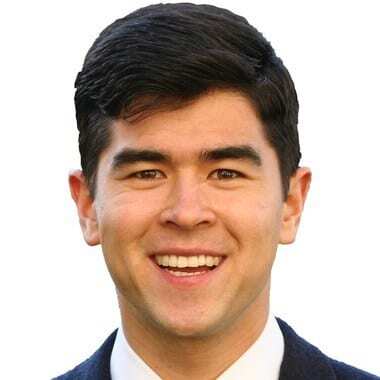 Aaron Yeoh MD
Aaron Yeoh MDAdvisor
Aaron Yeoh MDAdvisor
Undergraduate: BS, Kenyon College
Medical School: MD, Harvard Medical School
Residency: Stanford University Hospital -
 Adrian Diaz MD
Adrian Diaz MDAdvisor
Adrian Diaz MDAdvisor
Undergraduate: Nova Southeastern University
Medical School: VCU School of Medicine
Residency: Mayo Clinic College of Medicine
Residency: Ohio State University -
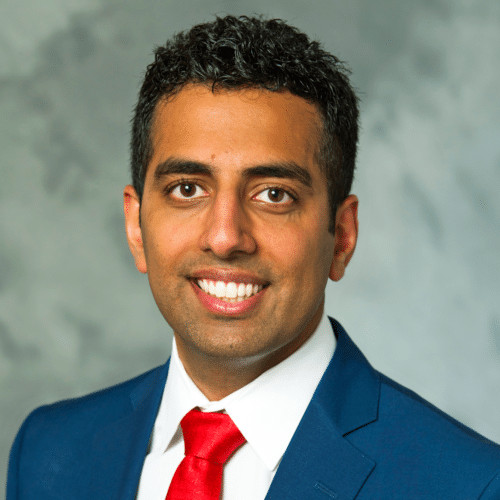 Akshay Sanan MD
Akshay Sanan MDAdvisor
Akshay Sanan MDAdvisor
Undergraduate: Boston University
Medical School: MD, Boston University School of Medicine
Residency: Thomas Jefferson University
Fellowship: Stanford University -
 Akshita Mehta MD
Akshita Mehta MDAdvisor
Akshita Mehta MDAdvisor
Undergraduate: BS, University of Maryland
Medical School: MD, George Washington University
Residency: University of Texas Southwestern -
 Alexandra Webb MD
Alexandra Webb MDAdvisor
Alexandra Webb MDAdvisor
Undergraduate: Princeton University
Medical School: University of Texas Southwestern Medical School
Residency: Emory University -
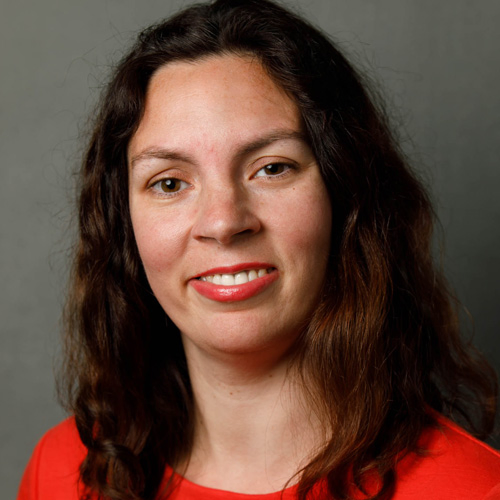 Alexis Dallara-Marsh MD
Alexis Dallara-Marsh MDStandard Advisor
Alexis Dallara-Marsh MDStandard Advisor
Undergraduate: BS- City College of New York
Medical School: MD- State University of New York- Health Science Center at Brooklyn
Residency: Columbia University
Fellowship: Columbia University -
 Alice Khmutova MD
Alice Khmutova MDAdvisor
Alice Khmutova MDAdvisor
Undergraduate:University of California, Davis
Medical School: Oakland University William Beaumont School of Medicine
Residency: Stony Brook Hospital -
 Alix Ferdinand MD
Alix Ferdinand MDAdvisor
Alix Ferdinand MDAdvisor
Undergraduate: BS, Georgia State University
Medical School: MD, Emory University School of Medicine
Residency: University of Miami -
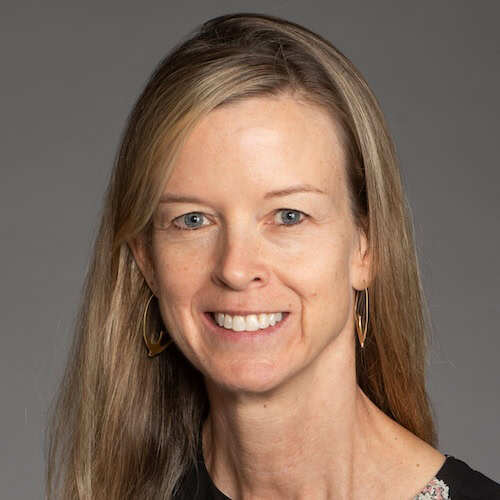 Allison McBride MD
Allison McBride MDAdvisor
Allison McBride MDAdvisor
Undergraduate: University of North Carolina, Chapel Hill
Medical School: University of North Carolina School of Medicine
Residency: Vanderbilt Pediatrics Residency Program
Fellowship: Vanderbilt Pediatric Emergency Medicine -
 Alyea Pierce
Alyea PierceWriting Advisor
Alyea PierceWriting Advisor
Graduate Education: Masters of Education in Higher Education Administration, Rutgers University
Undergraduate Education: B.A in Communications, Rutgers University



